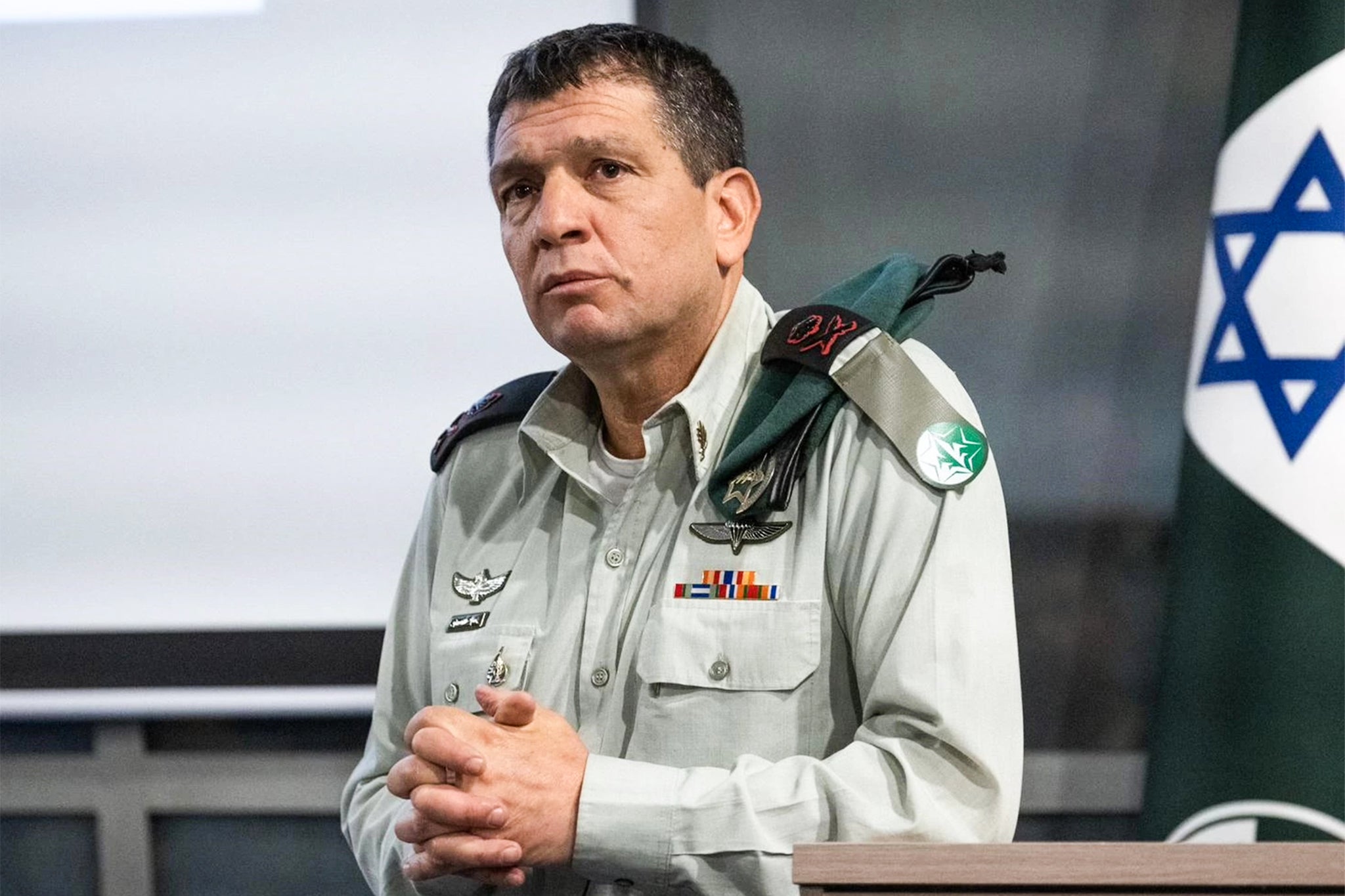Israel’s military intelligence chief quits over 7 October Hamas attack: ‘I carry that black day with me’
Major General Aharon Haliva’s resignation could set the stage for more fallout from Israel’s top security brass over attack – in which around 1,200 Israelis were killed and another 250 taken hostage

The head of Israel's military intelligence has resigned over the failures surrounding the 7 October terror attack by Hamas – becoming the first senior figure to step down.
Major General Aharon Haliva's resignation could set the stage for more fallout from Israel's top security brass over the attack, when Hamas blasted through Israel's border defences, rampaged through Israeli communities unchallenged for hours, killing around 1,200 people, and taking roughly 250 hostages into Gaza. That attack set off the war against Hamas in Gaza, now in its seventh month.
“The intelligence directorate under my command did not live up to the task we were entrusted with. I carry that black day with me ever since, day after day, night after night. I will carry the horrible pain of the war with me forever,” Haliva wrote in his resignation letter, which was provided by the military.
Shortly after the war, Maj Gen Haliva publicly said that he shouldered blame for not preventing the assault as the head of the military department responsible for providing the government and the military with intelligence warnings and daily alerts.
The military said in the statement that the military chief of staff accepted Maj Gen Haliva's request to resign and thanked him for his 38 years of service. Confiming that he would stay in post until a replacement was appointed, Maj Gen Haliva said: “Until the end of my shift, I will do everything for the defeat of Hamas and those who want to harm us and, the work for the return of the captives and the missing to their homes and land.”
Maj Gen Haliva, as well as other military and security leaders, were widely expected to resign in response to the glaring failures that led up to 7 October and the scale of its ferocity.
But the timing of the resignations has been unclear because Israel is still fighting Hamas in Gaza and battling the Lebanese militant group Hezbollah in the north. Tensions with Iran are also high following attacks between the two enemies. Some military experts have said resignations at a time when Israel is engaged on multiple fronts are irresponsible and could be interpreted as a sign of weakness.
While Maj Gen Haliva and others have accepted blame for failing to stop the attack, others have stopped short, most notably Prime Minister Benjamin Netanyahu, who has said he will answer tough questions about his role but has not outright acknowledged direct responsibility for allowing the attack to unfold. He has also not indicated that he will step down, although a growing protest movement is demanding elections be held soon.
Israeli opposition leader Yair Lapid welcomed the resignation, saying it was “justified and dignified”.
“It would be appropriate for Prime Minister Netanyahu to do the same,” he wrote on X, formerly Twitter.
The Hamas attack caught Israel and its vaunted security establishment entirely off guard. Israelis' sense of faith in their military was shattered in the face of Hamas' onslaught. The resignation could help restore some of that trust.
The attack set off the devastating war that has killed more than 34,000 Palestinians in Gaza, according to local health officials, at least two-thirds of them children and women. It has devastated Gaza's two largest cities, and driven 80 per cent of the territory's population to flee to other parts of the besieged coastal enclave. The war has sparked a humanitarian catastrophe that has drawn warnings of imminent famine.
On Monday, Palestinian civil defence authorities in the Gaza Strip said that they had uncovered mass graves in the courtyard of Nasser Medical Complex, in the southern city of Khan Younis. Previous reports said the burial area was built when Israeli forces were besieging the facility last month. The Palestinian civil defence authorities said more than 200 bodies have been removed from the site.
The attack also sent shock waves through the region. Tensions have rocked the Israeli-occupied West Bank, as well as cities and towns within Israel itself.
On Monday, Israeli police said that a car had slammed into pedestrians in Jerusalem, wounding three lightly. Security camera footage showed two men exiting the car with a rifle before fleeing the scene. Police later said they arrested the two men.
Associated Press
Subscribe to Independent Premium to bookmark this article
Want to bookmark your favourite articles and stories to read or reference later? Start your Independent Premium subscription today.

Join our commenting forum
Join thought-provoking conversations, follow other Independent readers and see their replies